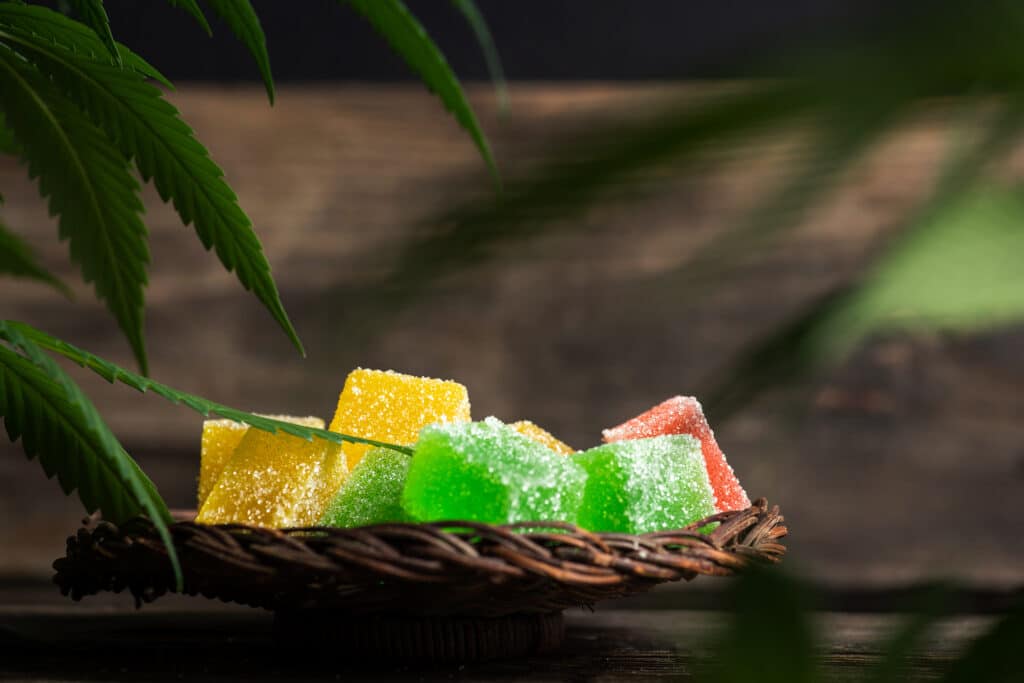CANADA,, DMT, psilocybin
LSD Edibles and Circadian Rhythms: Do Psychedelics Influence Sleep-Wake Cycles?
LSD edibles—meaning LSD administered orally as chocolates, gummies, or similar products—are gaining attention for their potential impacts on sleep and circadian rhythms. Recent studies shed light on how psychedelics like LSD affect sleep architecture, timing, and the body’s internal clock, with intriguing implications for mood and well-being.
Immediate Effects on Sleep and Wakefulness
- Acute Disruption: When LSD is consumed, it alters brain chemistry—particularly serotonin signaling—in ways that can disrupt normal sleep patterns in the short term. The immediate effects often include increased wakefulness, delayed onset of sleep, and reductions in certain sleep stages, such as spindle sleep and REM (rapid eye movement) sleep during the initial hours after ingestion.
- REM Sleep Changes: Unlike many drugs that suppress REM, low doses of LSD can actually increase the total duration of REM sleep, sometimes by over 100% compared to baseline, leading to more intense dreams or even vivid nightmares for some users. Increased REM sleep has been reported both after single and repeated administration.
Aftereffects and the “Rebound”
- Prolonged Effects Post-Use: New clinical research shows that the night following LSD microdosing (tiny, sub-perceptual doses often present in edibles), people tend to sleep longer and go to bed earlier compared to placebo, with an average of 24 extra minutes of sleep and about 8 additional minutes of REM sleep.
- These changes are not usually seen the day the LSD is taken, but rather the night after dosing, suggesting a kind of “afterglow” effect on sleep.
Influence on Circadian Rhythms
- Direct Action on the Brain’s Clock: The body’s primary circadian clock is located in the suprachiasmatic nucleus (SCN) of the hypothalamus. While much of the direct research is on cannabinoids, LSD and other psychedelics may alter the brain’s synchronization to environmental cues, such as light and time. This can manifest as a distorted sense of time and temporary disruption of normal sleep-wake cycles.
- Altered Sleep Cycle: In animal and human experiments, psychedelics cause acute disruption of the usual sleep-wake timing and architecture. For example, the onset of key sleep stages may be delayed, and the proportion of REM versus NREM (deep) sleep is often shifted.
Long-Term Impact
- No Evidence of Persistent Rhythm Disruption: While single or occasional use of LSD edibles can temporarily shift sleep timing and architecture, most studies find no lasting disruptions to circadian rhythms or sleep structure after the acute and afterglow phases have passed. Reported effects generally normalize within several nights.
- Individual Differences: The degree of alteration may vary based on dose, time of administration, prior sleep history, and individual neurobiology. Negative side effects—such as sleep disruption, intense dreams, or daytime drowsiness—are more likely at higher doses and in sensitive individuals.
Comparison With Other Psychedelics and Edibles
- Other Psychedelics: Psilocybin and DMT, like LSD, also transiently disrupt sleep stages and can delay the onset of REM or NREM sleep, but do not generally produce long-term circadian misalignment.
- Non-Psychedelic Edibles: Cannabinoid edibles (THC/CBD) have mixed effects, with THC sometimes fragmenting sleep and CBD potentially supporting circadian gene expression, though results are inconsistent and often person-specific.
Key Takeaways
- LSD edibles can cause acute and sub-acute changes to sleep, such as delaying sleep, increasing REM, and lengthening total sleep time after use.
- These effects are typically short-lived; sleep patterns and circadian timing normalize soon after.
- There is no current evidence that responsible use of LSD edibles chronically disrupts the circadian system or the fundamental sleep-wake cycle, but sensitive individuals or those with pre-existing sleep disorders may be more vulnerable to temporary disturbances.
- As with any psychoactive substance, experiences vary, and the use of LSD remains illegal in many areas, with potential risks in unsupervised settings.
Disclaimer: All forms of LSD, including edibles, are controlled substances in most countries. Medical supervision is needed for any therapeutic uses. Seek professional guidance if you have sleep or circadian rhythm disturbances.


